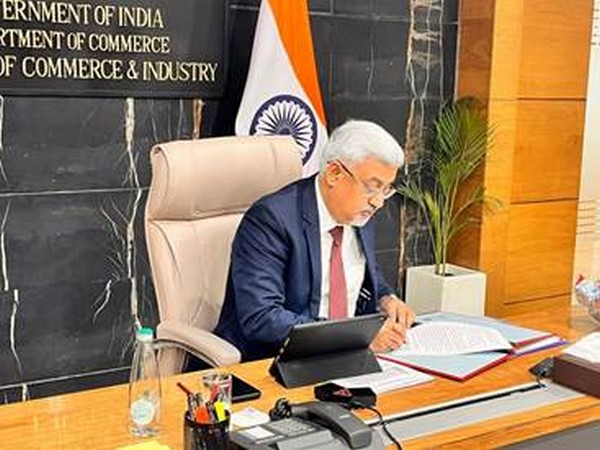India-EFTA Trade Agreement: A New Era of Economic Collaboration
The Trade and Economic Partnership Agreement (TEPA) between India and EFTA countries aims to unlock Indian export opportunities and investments worth USD 100 billion. It covers various sectors, boosting India's market access and supporting major initiatives. Secretary Sunil Barthwal led efforts in Norway to accelerate TEPA's implementation.

- Country:
- India
The Trade and Economic Partnership Agreement (TEPA), signed in March 2024, marks a significant step forward for trade relations between India and the European Free Trade Association (EFTA) nations. This pact is anticipated to unleash extensive export opportunities for India, nurturing investments predicted to reach USD 100 billion. According to the Ministry of Commerce and Industry, the comprehensive agreement is tailored to enhance bilateral trade across a spectrum of goods, services, and sectors, establishing a framework for mutual cooperation.
On November 22, Sunil Barthwal, Secretary of the Department of Commerce, spearheaded a high-level delegation to Norway. The objective was to advance the ambitious goals of TEPA, focusing on the rapid implementation of the promised USD 100 billion investment commitment and expanding market access to Indian goods and services throughout the EFTA bloc, comprising Norway, Switzerland, Iceland, and Liechtenstein.
TEPA encompasses a forward-thinking trade arrangement, opening markets to 99.6 percent of Indian exports, while EFTA countries reciprocate with concessions on 92.2 percent of their tariff lines. This involves complete tariff abolition on non-agricultural products and significant reductions for processed agricultural goods. In exchange, India has pledged to open 82.7 percent of its tariff lines, benefiting 95.3 percent of EFTA exports.
The agreement is poised to propel India's service industry, notably in IT, business, education, audio-visual, and cultural sectors, through various access modes including digital platforms, commercial presence, and temporary staff mobility. TEPA is expected to reinforce domestic manufacturing and back initiatives like Make in India and Atmanirbhar Bharat, while spurring investments in infrastructure, manufacturing, pharmaceuticals, chemicals, and numerous other fields.
Furthermore, TEPA will contribute to job creation for India's burgeoning youth population, prioritizing vocational and technical training avenues over the next 15 years. It also facilitates technological partnerships, providing access to cutting-edge advancements in precision engineering, health sciences, renewable energy, and R&D.
During his visit, Barthwal engaged with Tomas Norvoll, State Secretary at Norway's Ministry of Trade, Industry, and Fisheries, to discuss pivotal areas such as trade, investment, and professional mobility for Indians. Meetings were also held with HE Cecilie Myrseth, Minister of Trade and Industry, and HE Jan Christian Vestre, Minister of Health and Care Services, where Barthwal emphasized the urgency of TEPA ratification.
At the Norwegian Parliament, Barthwal highlighted TEPA's transformative potential and bilateral benefits, advocating for reinvigorated institutional cooperation and industrial collaboration. Interactions with business stakeholders, including the Norwegian Chamber of Commerce, Innovation Norway, and leaders from sectors like renewable energy and IT, rounded off the visit. Barthwal asserted India's quick economic rise from the world's fifth-largest to the third-largest economy is imminent within the next few years, presenting vast prospects for Norwegian businesses.
(With inputs from agencies.)
ALSO READ
Gehlot Questions Investment Summit Efficacy Amid Past Project Delays
Modi's Dual State Visit: Boosting Investment & Empowering Women
PM Modi's Strategic Visit to Rajasthan and Haryana: Paving Paths for Investment and Empowerment
Rising Rajasthan 2024: A Gateway to Global Investments
Strategic Investments: KREEVA, ASK Property Fund, and Shapoorji Pallonji Converge in Gurugram Real Estate Venture










